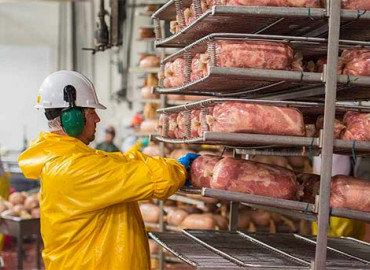Food Quality

In 1996, Congress passed landmark food safety legislation called the Food Quality Protection Act (FQPA).
The goal of the FQPA is to protect the public from harmful pesticide residues. Under prior law, the EPA established “tolerances” (maximum legal levels) for pesticide chemical residues in food. The FQPA considers pesticide tolerances as “safe” when there is a reasonable certainty that no harm will result from cumulative exposure to pesticide residues. These tolerances are based on a risk assessment that includes all anticipated dietary exposures and all other exposures for which there is reliable information. The Food and Drug Administration (FDA) enforces tolerances for most foods. The U.S. Department of Agriculture’s Food Safety and Inspection Services enforces tolerances for meat, poultry, and some egg products.
Overview of the FQPA’s Provisions
- Sets a “reasonable certainty of no harm” safety standard for pesticide residues in all foods.
- Requires EPA to determine tolerances that are safe for infants and children.
- Limits consideration of pesticide benefits when setting tolerances.
- Requires EPA’s review of all existing tolerances within 10 years after passage of the FQPA.
- Provides for endocrine testing to determine potential endocrine disruptors (chemicals that alter and adversely effect the structure or function of the endocrine system in humans and wildlife).
- Permits FDA to impose civil penalties for tolerance violations.
- Requires consumers to be informed of health effects of pesticides.
- Ends use of pesticides that pose a high risk to human health or the environment.
Implementation of the FQPA
The EPA adopted a schedule for review of all existing tolerance assessments. In 1999, environmental groups and others filed suit, alleging the EPA had failed to meet the deadlines adopted for its tolerance reassessments. The federal district court approved a consent decree among the parties which binds the EPA to a timetable for tolerance reassessments. The EPA’s review of existing tolerance assessments is scheduled for completion by August 2006.
Disclaimer: Ross Feller Casey, LLP provides legal advice only after an attorney-client relationship is formed. Our website is an introduction to the firm and does not create a relationship between our attorneys and clients. An attorney-client relationship is formed only after a written agreement is signed by the client and the firm. Because every case is unique, the description of awards and summary of cases successfully handled are not intended to imply or guarantee that same success in other cases. Ross Feller Casey, LLP represents catastrophically injured persons and their families in injury and wrongful death cases, providing legal representation in Pennsylvania and New Jersey.





